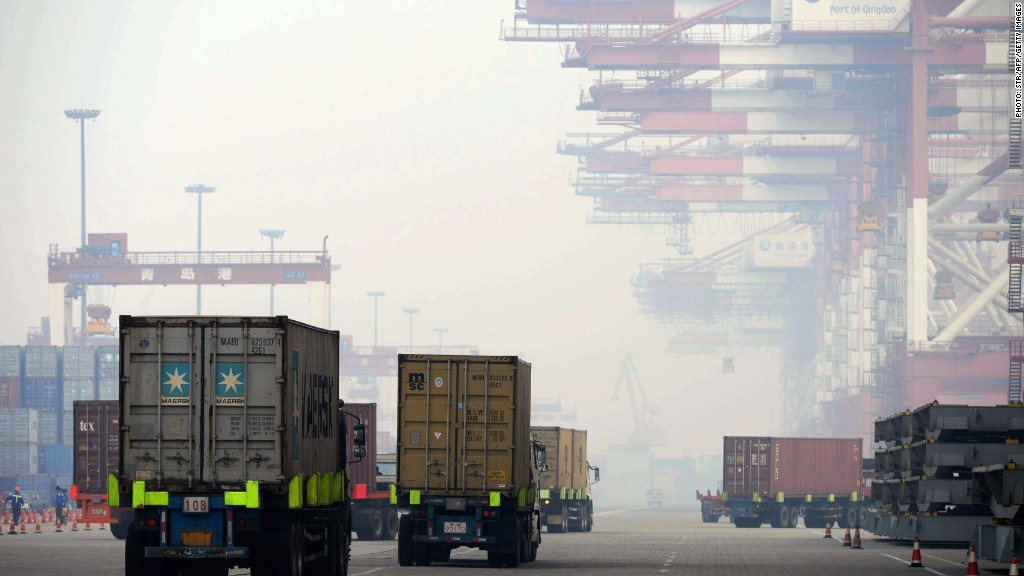
China's economy grew at a faster pace last year than the government's official target, even as Beijing sought to implement painful economic reforms.
Gross domestic product grew by 7.7% in 2013 over the previous year, according to China's National Bureau of Statistics, a performance that matched the median estimate of a CNNMoney survey. Full-year expansion was supported by 7.7% growth in the final quarter of the year, beating the survey forecast of 7.6% by a whisker.
While last year's growth topped the government's official target of 7.5%, China's economy is stagnating after recording revised 7.7% GDP growth in 2012 and 9.3% in 2011. Looking ahead for 2014, expansion is forecast to slow to 7.4%.
"The data reinforce our view that growth is on a downtrend and we continue to expect GDP growth to slow [in 2014]," Nomura economists wrote in a research note.
China's benchmark index, the Shanghai Composite, slipped 0.7% in afternoon trading, while Hong Kong's Hang Seng index dipped 0.8%.
Related story: China's growth expected to beat official target
The pace of China's GDP growth is the most comprehensive gauge of the country's economic health -- an important number to monitor as the government works to bring about stability after decades of runaway expansion. As part of efforts to find more sustainable growth, the government introduced last year a wide range of reforms that tackle everything from fiscal policy to family planning standards.
Economists think the reforms are necessary for China, but putting the plan into action won't be easy and gains may not be reflected in the economy for years.
Related story: Inside China's $2.2 trillion budget

How changes are implemented, and the order in which reforms are introduced, will determine whether or not there is any impact on the economy, said Wang Tao of UBS.
An emphasis should be placed on reforming state-owned enterprises and fiscal policy first, she said. If done successfully, Wang said the reforms could keep China's annual economic growth at 6% to 7% over the next decade.
Other experts are less optimistic. Nomura economists said some of the government's plans still remain vague, and more significant reforms are needed to reduce dependence on state-backed businesses.
Related story: China lifts IPO ban and relaxes rules
Economists surveyed by CNNMoney said that China's economy continues to face a number of threats, with credit growth and local government debt topping the list. Reining in credit could lead to an unexpected liquidity squeeze, while expansion could also spell disaster.
"With the rapid development of interbank and other 'shadow' credit activities in recent years, the task of managing liquidity and credit conditions has become increasingly difficult," said UBS's Wang.


